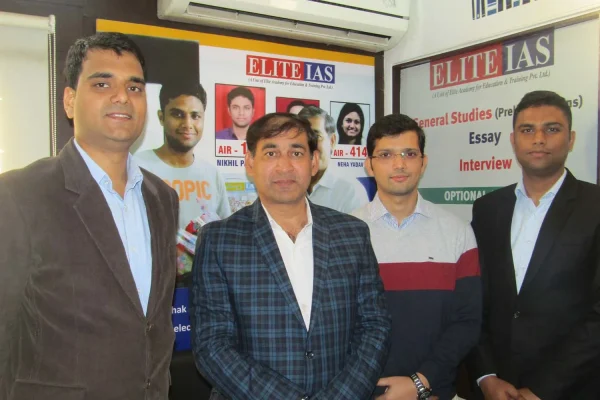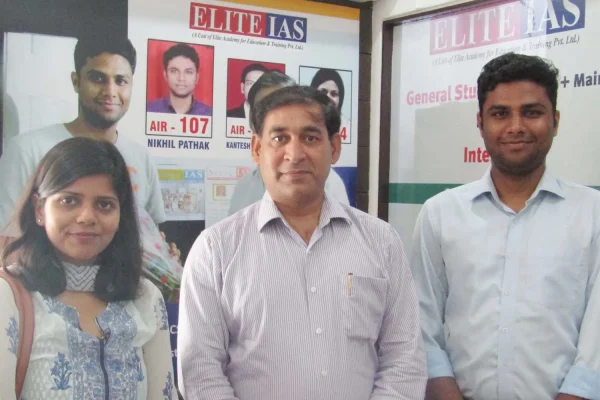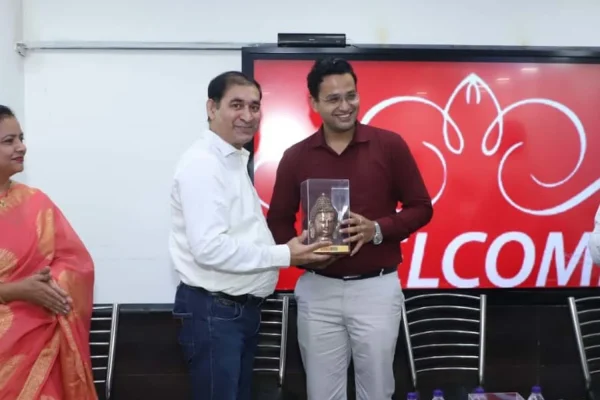




Best IAS Coaching in Delhi
All Four GS Papers of the UPSC Syllabus will be Uploaded Soon
Like & Subscribe for Instant Updates
Prelims & Mains Lectures
Mains Classroom Lectures
Best UPSC Coaching in Delhi: Is It Really Worth the Hype?
Delhi is often called the Mecca of IAS preparation. Every year, thousands of UPSC aspirants pack their dreams, leave their hometowns, and land in areas like Rajinder Nagar, Mukherjee Nagar, or Karol Bagh — hoping to find that one perfect IAS coaching in Delhi that will change their destiny.
And why not? Delhi has been the breeding ground of toppers for decades. From India’s best mentors to access to vast resources, the capital city has built an ecosystem around the UPSC Civil Services Examination that’s unmatched anywhere else in the country.
But here’s the real question — do you really need coaching to clear UPSC? Or is it just a psychological comfort blanket? Let’s break this down with clarity, not hype.
Why Delhi Became the Hub of IAS Coaching
If you’ve ever walked down the lanes of Mukherjee Nagar or Rajinder Nagar, you’ll understand why Delhi is called the heart of IAS coaching in India. Almost every corner has a classroom, every wall has posters of toppers, and every tea stall buzzes with debates on polity and economy.
Delhi earned this reputation because:
- It houses some of India’s best UPSC coaching institutes with legacy faculty and result records.
- The competitive environment motivates students to push harder.
- Access to latest resources, current affairs discussions, and peer learning creates a complete preparation ecosystem.
In short, Delhi doesn’t just offer coaching — it offers a mindset. That intensity, that sense of purpose, is hard to replicate elsewhere.
Why Students Prefer IAS Coaching in Delhi
The biggest reason students choose IAS coaching in Delhi is structure. UPSC is a vast ocean — and without direction, many drown in information overload. Coaching institutes give that sense of order.
Here’s why Delhi continues to attract aspirants:
- Guidance from Experienced Faculty: Many teachers here have been mentoring toppers for over a decade. Their understanding of UPSC trends, answer-writing patterns, and exam psychology is unmatched.
- Peer Learning Environment: When you sit in a batch of 200 equally motivated students, competition automatically sharpens your focus.
- Updated Study Material: Coaching institutes in Delhi regularly update their notes based on changing UPSC trends.
- Regular Tests & Feedback: Weekly tests simulate the UPSC experience, helping students stay exam-ready.
- Interview Mentorship: Delhi academies host mock interviews with retired bureaucrats — a rare advantage.
So yes, there’s a reason Delhi remains the top choice for aspirants chasing the IAS dream.
Advantages of Joining IAS Coaching in Delhi
Joining a reputed IAS academy in Delhi can be a game-changer — if you use it wisely.
- Structured Preparation
The UPSC syllabus is massive. Coaching helps you break it into manageable segments — what to read, what to skip, how to revise, and how to connect topics across papers.
- Access to Mentorship
A good mentor can cut your preparation time by half. Delhi institutes offer access to teachers who’ve mentored multiple rank-holders.
- Test Practice and Evaluation
Regular tests, instant feedback, and answer improvement sessions keep you on track.
- Motivation and Peer Pressure
When everyone around you is equally driven, procrastination doesn’t stand a chance.
- Resource Availability
Delhi’s libraries, bookshops, and coaching networks mean you’ll never run short of study materials, mock tests, or discussions.
Disadvantages of IAS Coaching in Delhi
But let’s not sugarcoat it — coaching in Delhi also has its dark side.
- Expensive and Overhyped
Most reputed UPSC coaching in Delhi costs anywhere between ₹1.5 to ₹2.5 lakhs annually — excluding rent and food. Add another ₹10,000–₹15,000 monthly for living expenses, and it becomes a financial burden for many families.
- Crowded Batches
Popular institutes often have 200–400 students per batch. Personalized guidance? Forget it. You’re mostly on your own after class.
- Herd Mentality
Students often follow what everyone else is doing — same optional subject, same booklist — instead of building a personal strategy.
- Dependency Trap
Many aspirants start believing coaching equals selection. It doesn’t. Coaching can help, but you still have to do the hard work.
- Burnout Risk
Living alone, handling pressure, and surviving in Delhi’s competitive chaos can drain even the brightest minds.
So, while Delhi has the best coaching infrastructure, it also demands resilience, maturity, and independence.
Important Considerations Before Choosing IAS Coaching
Before enrolling anywhere, do your due diligence. Don’t get swayed by flashy advertisements or topper photos. Here’s what really matters:
- Faculty Experience
Check if the mentors actually teach or just lend their names for marketing. Real guidance comes from consistent classroom interaction.
- Batch Size
Smaller batches (under 100) ensure more personalized attention and feedback.
- Test Series Quality
A coaching institute is only as good as its test series. Ensure they’re challenging, analytical, and mimic UPSC’s unpredictability.
- Course Duration & Coverage
Some institutes rush through the syllabus; others take forever. A good coaching plan should balance both.
- Past Results Transparency
Always ask for verifiable results — not inflated claims. Many institutes show total UPSC selections instead of IAS-specific ones.
- Flexibility for Revision
Recorded classes or backup sessions are essential for working professionals and re-takers.
- Location & Time Management
If your class is 10 km away, you’ll waste hours daily. Proximity matters — time is gold during UPSC prep.
For Diligent Students: Coaching Isn’t Compulsory
Now, let’s talk truth. Coaching can help — but it’s not a magic formula. Many toppers, including rank holders from small towns, cracked UPSC without attending any coaching at all.
What they had in common?
- Consistency
- Smart planning
- Self-analysis
- And above all, discipline
If you’re sincere and capable of self-study, you don’t need to spend lakhs. You just need access to quality content, test series, and mentorship from free or affordable sources.
Free Full UPSC Course on YouTube
For example, you can get an entire UPSC foundation course — covering Prelims, Mains, and Optional — completely free on YouTube.
Elite IAS YouTube Channel: https://www.youtube.com/@eliteias/playlists
This channel offers comprehensive playlists on General Studies, Sociology, Ethics, and Essay writing — exactly what coaching institutes charge huge money for. For self-motivated learners, it’s a goldmine. Bookmark it, use it wisely, and you’ll be miles ahead.

The Role of Test Series in UPSC Preparation
If you’re skipping coaching, never skip test series. They’re the backbone of UPSC preparation.
Why Test Series Matter:
Simulate Real Exam Pressure: You learn time management under exam conditions.
- Identify Weaknesses: Every test reveals your conceptual gaps.
- Answer Writing Practice: Helps in structuring responses and improving presentation — crucial for Mains.
- Continuous Evaluation: Keeps you accountable and prevents overconfidence.
Even top IAS academies in Delhi emphasize test series more than regular classes. You can join one online without shifting to Delhi.
Life of an Aspirant in Delhi: The Reality
Let’s be honest — Delhi isn’t for everyone.
Areas like Mukherjee Nagar and Rajinder Nagar are crowded, noisy, and expensive. But they’re also full of life, energy, and ambition. You’ll find:
- Libraries filled with students from 7 a.m. till midnight.
- Bookshops stacked with every UPSC resource imaginable.
- Cafes doubling as study corners.
But you’ll also face:
- Distractions — social life, peer comparison, burnout.
- Pressure — everyone around you is preparing; it can be suffocating.
- Loneliness — especially for students far from home.
If you plan to move to Delhi, come with mental resilience and financial planning. Delhi rewards the determined, but it tests everyone.
Delhi Is the Hub, But Not the Only Way
It’s true — Delhi offers unmatched infrastructure for IAS aspirants. But it’s equally true that the UPSC exam is cracked by thinkers, not followers. Coaching can guide, but it can’t think for you.
If you’re self-motivated, you can create your own Delhi — right at home — with discipline, resources, and online support.
Whether you join a best IAS academy in Delhi or prepare independently, success will still depend on the same three things:
Consistency, Clarity, and Curiosity.

Factors Influencing UPSC Cut Off
The UPSC Cut Off is shaped by several key factors that critically influence the minimum marks candidates must achieve to progress through the stages of the Civil Services Examination. These factors are considered by officials when determining the cut-off marks for each phase, including the Prelims, Mains, and the final UPSC Cut Off. Below are the primary elements that impact the UPSC CSE Cut Off:
Read More
Number of Vacancies: More available positions can lead to a reduction in the UPSC cut off, allowing a larger number of candidates to qualify based on their performance.
Reservation Policy: The UPSC adheres to a reservation policy for categories such as General, OBC, SC, ST, etc. The cut off marks for these categories are adjusted according to the proportion of candidates and the reserved seats for each group.
Performance of Candidates: The cut off might increase if a majority of candidates perform exceptionally well. Conversely, it might decrease if the overall performance leans towards average.
Normalisation Procedure: The UPSC implements a normalisation procedure during the Prelims to ensure fairness in calculating the cut-off. This method adjusts the scores of candidates to account for the varying difficulty levels across different sets of question papers.
Overall Competition: The intensity of competition and the caliber of candidates participating in any given year also affect the UPSC cut off. Intense competition usually pushes the cut off higher.
UPSC Cut Off – Tie Breaking Rules
In the UPSC Civil Services Examination, when candidates score identical aggregate marks, the UPSC applies a ‘Tie-breaking’ principle to determine their relative ranks:
This ‘Tie-breaking’ principle helps ensure fairness and transparency in the ranking process, providing a clear and systematic method to distinguish between candidates who achieve the same total marks.

Important Things To Know About UPSC CSE Examination
UPSC Eligibility Criteria 2025 -26 CSE Examination.
Educational qualification for UPSC Civil Services: Graduation from any
recognized university, Nationality Indian.
IAS Age Limit: 21 to 32 years.
Age relaxation: As Per Category (mentioned below) – Number of Attempts for UPSC Exam for Any Candidate.
1. For General category, EWS and OBC Category belonging to Creamy layer – 6 Attempts (upto age of 32 years).
2. For OBC non-creamy layer – 9 Attempts (upto age of 35 years).
Read More
3. For Scheduled Caste (SC) and Scheduled Tribe (ST) – There is no restriction on the number of attempts till they reach the upper age limit of 37 years.
Note: General, EWS & OBC – Physically disabled candidates have – 9 Attempts. SC/ST physically disabled candidates have unlimited attempts till the age of 37 years.

Before enrolling anywhere, do your due diligence. Don’t get swayed by flashy advertisements or topper photos. Here’s what really matters:
- Faculty Experience
Check if the mentors actually teach or just lend their names for marketing. Real guidance comes from consistent classroom interaction.
- Batch Size
Smaller batches (under 100) ensure more personalized attention and feedback.
- Test Series Quality
A coaching institute is only as good as its test series. Ensure they’re challenging, analytical, and mimic UPSC’s unpredictability.
- Course Duration & Coverage
Some institutes rush through the syllabus; others take forever. A good coaching plan should balance both.
- Past Results Transparency
Always ask for verifiable results — not inflated claims. Many institutes show total UPSC selections instead of IAS-specific ones.
- Flexibility for Revision
Recorded classes or backup sessions are essential for working professionals and re-takers.
- Location & Time Management
If your class is 10 km away, you’ll waste hours daily. Proximity matters — time is gold during UPSC prep.
